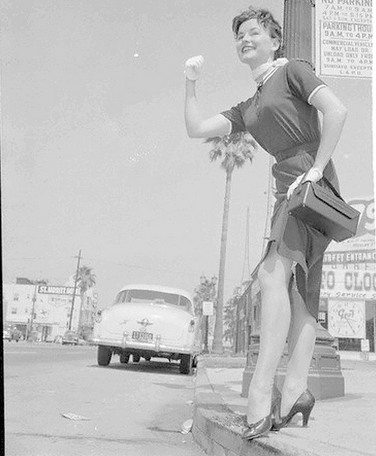Last year, I began subscribing to Trains Magazine. As one of the perks, each Monday I get an e-mail with links to the news items appearing during the past week on its online News Wire. Any stories about the Pacific Northwest or involving Amtrak's Empire Builder I dutifully cut and paste for e-mailing to my brother who lives in Spokane and is a rail buff (my way of giving him a pat on the back for being a great Dad to my autistic nephew).

I tend to take a look-see at any coverage of urban rail. Once in a while there is an article that really resonates in a big picture sort of way. The latest of that type heralded the release by the American Public Transit Association (a trade group) of a report titled Millennials and Mobility: Understanding the Millennial Mindset. For a summary see the press release posted on the APTA website. Funding for the survery was provided by the Transit Cooperative Research Program which posted the final survey instrument and the survey data on its website.
As the report notes the downward trend of auto use in the U.S. being led by the Millennials has been the object of several reports as noted by Tanya Snyder in a post last week on the role of new technologies in the decline of driving. National Public Radio recently also did a multi-part special series on Millennials and The Changing Car Culture.
The avowed purpose of this new report is "... to further understand the mindsets behind the trends and understand their implications for public transportation in the United States". My admittedly unscientific perception as someone who has relied on public transit for his mobility since 1981 is that the demographic of my fellow transit users in the L.A. basin has gradually widened a bit, especially during peak hour weekday commuting.
This has policy implications.
During previous strikes by Metro employees in 2000 and 2003 my impression of the media coverage was that its tenor was along the lines of "Those folks who ride buses are sure suffering". The Metro Board seemed to often be in no hurry to settle with some elements hoping to use the contract talks to extract various concessions. I think the broader group of people dependent on mass transit today means inaction would likely cause at least a lot greater outcry to settle it quickly than during past strikes.
We'll see how things play out next year as the collective bargaining agreement that covers Metro's bus and rail operators expires in July.
Among the dynamics will be Board members Gloria Molina and Zev Yaroslavsky approaching the end of their political careers (in December 2014) and I have to think would not be enthused at having a strike mar the close out of their public service. Then we add to the mix new Los Angeles Mayor Eric Garcetti and his three Board appointees council members Mike Bonin and Paul Krekorian along with South Los Angeles activist “Jackie” Dupont-Walker. I can't hazard a guess what all these disparate elements interacting will engender, but as a transit user I hope it will be a settlement being reached without a strike preceding it. I'm crossing my fingers on that one!





